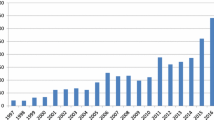
Overview
- Recent research on soft computing in humanities and social sciences
- Carefully edited book on applications of soft computing to human sciences
- Written by leading experts in the field
Part of the book series: Studies in Fuzziness and Soft Computing (STUDFUZZ, volume 273)
Access this book
Tax calculation will be finalised at checkout
Other ways to access
About this book
The field of Soft Computing in Humanities and Social Sciences is at a turning point. The strong distinction between “science” and “humanities” has been criticized from many fronts and, at the same time, an increasing cooperation between the so-called “hard sciences” and “soft sciences” is taking place in a wide range of scientific projects dealing with very complex and interdisciplinary topics. In the last fifteen years the area of Soft Computing has also experienced a gradual rapprochement to disciplines in the Humanities and Social Sciences, and also in the field of Medicine, Biology and even the Arts, a phenomenon that did not occur much in the previous years.
The collection of this book presents a generous sampling of the new and burgeoning field of Soft Computing in Humanities and Social Sciences, bringing together a wide array of authors and subject matters from different disciplines. Some of the contributors of the book belong to the scientific and technical areas of Soft Computing while others come from various fields in the humanities and social sciences such as Philosophy, History, Sociology or Economics.
Rudolf Seising received a Ph.D. degree in philosophy of science and a postdoctoral lecture qualification (PD) in history of science from the Ludwig Maximilians University of Munich.
He is an Adjoint Researcher at the European Centre for Soft Computing in Mieres (Asturias), Spain.
Veronica Sanz earned a Ph.D. in Philosophy at the University Complutense of Madrid (Spain). At the moment she is a Postdoctoral Researcher at the Science, Technology and Society Center in the University of California at Berkeley.
Veronica Sanz earned a Ph.D. in Philosophy at the University Complutense of Madrid (Spain). At the moment she is a Postdoctoral Researcher at the Science, Technology and Society Center in the University of California at Berkeley.
Similar content being viewed by others
Keywords
Table of contents (25 chapters)
-
Front Matter
-
Introduction
-
Front Matter
-
-
General Overviews of Soft Computing in Humanities and Social Sciences
-
Front Matter
-
-
Philosophy, Logic and Fuzzy Logic
-
Front Matter
-
-
Soft Computing, Natural Language and Perceptions
-
Front Matter
-
Editors and Affiliations
Bibliographic Information
Book Title: Soft Computing in Humanities and Social Sciences
Editors: Rudolf Seising, Veronica Sanz González
Series Title: Studies in Fuzziness and Soft Computing
DOI: https://doi.org/10.1007/978-3-642-24672-2
Publisher: Springer Berlin, Heidelberg
eBook Packages: Engineering, Engineering (R0)
Copyright Information: Springer Berlin Heidelberg 2012
Hardcover ISBN: 978-3-642-24671-5Published: 05 November 2011
Softcover ISBN: 978-3-642-44104-2Published: 28 January 2014
eBook ISBN: 978-3-642-24672-2Published: 22 November 2011
Series ISSN: 1434-9922
Series E-ISSN: 1860-0808
Edition Number: 1
Number of Pages: XVI, 520
Topics: Computational Intelligence



